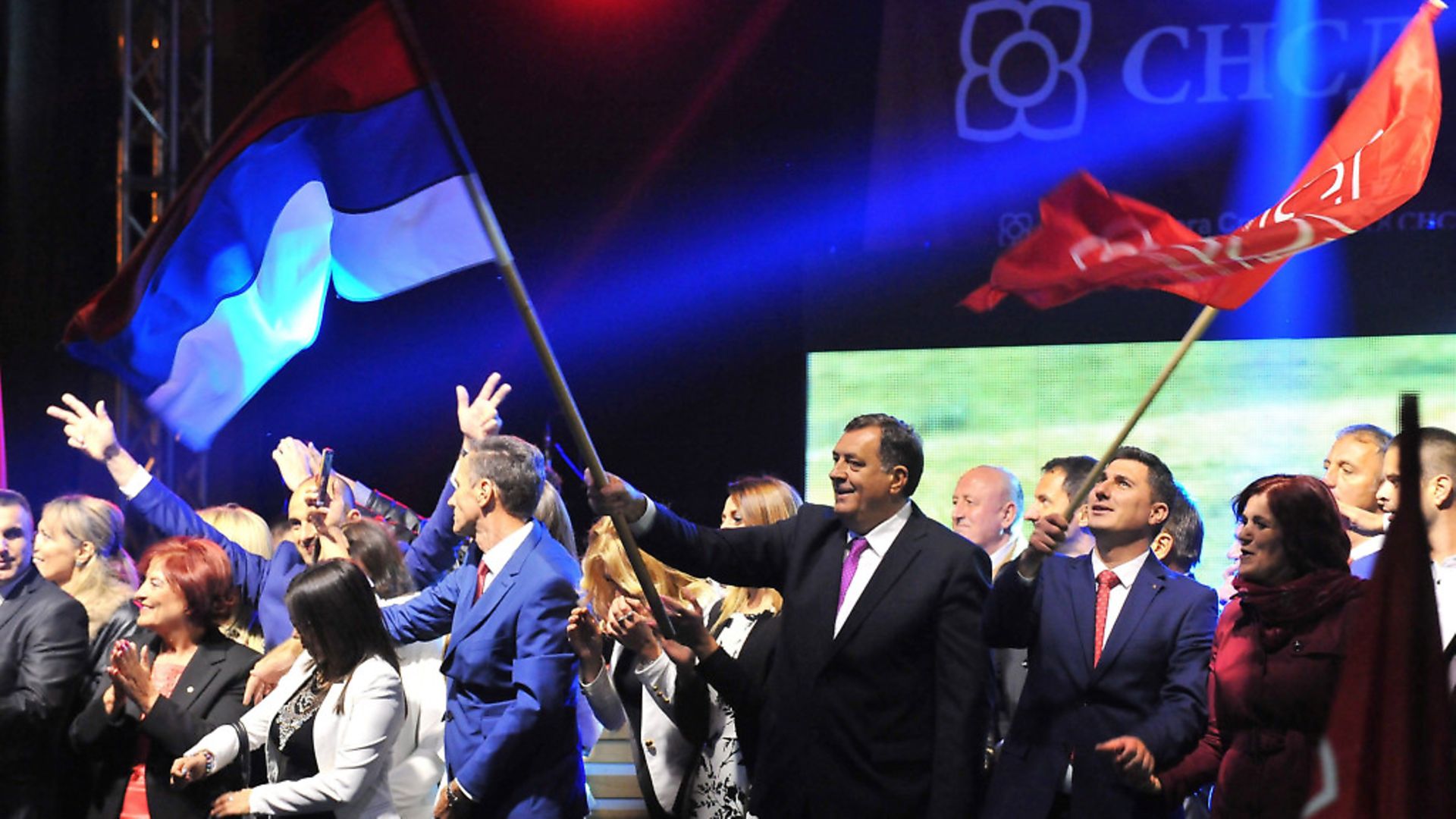
Without the US, Europe must do everything in its power to stop the backsliding in the Balkans
European leaders are already realigning following US President Donald Trump’s visit to Brussels. Given Trump’s refusal to explicitly commit to NATO’s Article 5 collective defence guarantee in his hectoring speech to his fellow alliance leaders, coupled with the gap in perceptions of Russia noted by European Council President Donald Tusk, this is necessary. American retrenchment will accelerate the negative trends already well underway in the Balkans.
Two months ago, European Commission President Jean-Claude Juncker warned US Vice President Mike Pence that the EU’s collapse could ignite war in the western Balkans. Thankfully, the election of Emmanuel Macron as president of France has defused fears of the EU’s demise – but the ongoing recession of democracy and rule of law, and the rekindling of militant, top-down ethnonationalism in the Balkans does indeed pose serious security risks for the West. Yet despite the magnitude of the threat crudely sketched by Juncker, the West’s collective approach to the region remains unchanged.
The West still holds massive potential leverage. US muscle was essential to achieving the progress made after the Balkan wars up until 2005. Since then it has atrophied through disuse. And with American backup not assured, the EU must finally get serious.
Seen from the Balkans, Trump’s Atlantic ambivalence is just the latest manifestation of a decade of declining strategic transatlantic engagement. Riding high after its 2004 ‘big bang’ enlargement, and positioning itself in opposition to US-led hard power in the wake of the invasion of Iraq, the EU presumed it could dispense with other policy tools. This set Balkan policy on bureaucratic autopilot.
With some exceptions and grumbling, the US followed along. Britain shared most of the US scepticism as to the adequacy of the approach, but seemed to give up the fight even before the Brexit vote. The confluence of EU hubris and US (and UK) disengagement has undermined the credibility of both, facilitating regression in reforms to towards democracy and the rule of law, and precipitating threats to hard-won peace and security.
Despite a decade’s cautionary evidence, the EU’s policy – and hence the Western default – remains stuck, eschewing confrontation with entrenched obstacles to embedding liberal democratic practice in the Balkans in the name of stability. This has facilitated the region’s descent into autocratic and illiberal governance – and ensuing instability.
Even before the 2015 refugee crisis, the policy amounted to ‘stability über Alles’, as it does for the rest of the Mediterranean littoral. This meant collaborating with increasingly illiberal and nationalist governments in undermining democratic standards, both for ‘stability’ and the sake of demonstrating the enlargement policy’s ‘momentum’. Confronting these leaders would advertise policy failure.
Serbia’s authoritarian consolidation was abetted by the EU and US. Macedonia’s abusive Gruevski regime was rewarded with personal pre-election backing from Austrian Foreign Minister Sebastian Kurz – a reward for Macedonia’s closing of the ‘Balkan route’ to migrants and refugees. At its worst, the EU has effectively sided with the adversaries of its values against their exponents.
Russia and other malign actors – including neo-authoritarian Turkey and the Gulf States – have ruthlessly exploited the vulnerabilities left exposed by the West. Russia acted as an opportunistic spoiler without needing to expend political capital. But after the seizure of Crimea from Ukraine in 2014, President Vladimir Putin launched a far more aggressive effort to generate instability and forestall NATO and EU enlargement.
Moscow encouraged Milorad Dodik, the leader of the Republika Srpska entity in Bosnia and Herzegovina, to press ahead with plans for secession. Russia also began to draw closer to Serbia – an EU candidate country – with a thinly veiled military logistical presence. Its personnel may yet get diplomatic status. As reported in the Guardian, Russia has been implicated in an October coup attempt in Montenegro, which has just joined NATO. It also drew increasingly close to Macedonia’s previously ruling party, which violently opposed relinquishing power to the parliamentary majority assembled after the December election. All this at no cost to Moscow from the West. Trump’s noncommittal stance will encourage malign actors, local and external, to push further.
At one time, the promotion and defence of democracy and human rights was – despite notorious deviations – a bipartisan American policy. Sadly, these are now considered insurgent, deviant political acts for Trump’s captured, new model GOP.
Europe can no longer count on US hard power backup or policy support under the Trump presidency. Nor can the EU rely solely on soft power to defend its values and promote its interests in the Balkans. President Macron and Chancellor Merkel seem to have already initiated a recalibration of the EU’s security calculus in response to Trump and Brexit. The long-overdue recalibration of Western – EU and NATO – policy in the Balkans must follow.
Political and popular forces demonstrating adherence to liberal democratic values in the Balkans need support to reverse a decade of regression. The full spectrum of tools available must be applied on their behalf. Peace, democracy, and the future of the transatlantic alliance depend on it.
Kurt Bassuener is a co-founder of the Democratization Policy Council and a Fulbright scholar at the University of St Andrews. He lived in Sarajevo for more than a decade and worked as an advisor to Lord Ashdown while the former Lib Dem leader served as international High Representative in Bosnia








